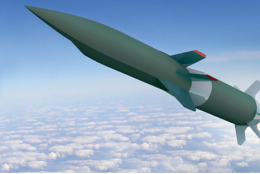On DoD
-
DoD is still quiet on the issue of online harassment.
May 16, 2022 -
Four cadets at the Air Force Academy may not graduate or be commissioned as military officers later this month because they have refused the COVID-19 vaccine, and they may be required to pay back thousands of dollars in tuition costs, according to Air Force officials.
May 14, 2022 -
During the COVID-19 pandemic, staffing the nation’s healthcare facilities has been a challenge pretty much across the board. But the military’s hospitals and clinics faced special circumstances.
May 13, 2022 -
The Navy has pledged more than $20 billion to modernize its aging shipyards, but serious questions remain about the plan's implementation. Maintenance backlogs and construction costs have grown.
May 13, 2022 -
Spy agencies are starting to organize around a set of common standards and data for using open source intelligence, but challenges remain.
May 12, 2022 -
The inspectors general for two intelligence agencies were each overpaid by tens of thousands of dollars between 2016 and 2020.
May 12, 2022 -
Some lawmakers felt political influence decided the location more than feasibility.
May 11, 2022 -
Congress says DoD's budget isn't big enough for price increases, however lawmakers hold the purse strings
May 10, 2022 -
As part of the Cybersecurity Maturity Model Certification exercise, DoD will figure out which data under Level 2 will require self-assessments and which will require third-party assessments.
May 09, 2022 -
The intelligence community is drafting a new data strategy for the first time since 2017, with a big focus on training a data savvy workforce.
May 06, 2022 -
Hypersonic projectiles, missiles moving at five times the speed of sound, have become a high priority across the Defense Department. You've got two basic ways of getting projectiles to go that fast. One is the electromagnetic rail gun. The other is the use of hat planners call air breathing engines, and those are the topic of a new effort at the Defense Advanced Research Projects Agency.
May 06, 2022 -
Like so many large government organizations, the Air Force is pursuing what it calls digital transformation. But what exactly is that, and what are the challenges to getting there. That question formed the basis for a series of workshops led by the National Academy of Science.
May 06, 2022 -
When the Defense Department buys high-dollar items under negotiated procurement rules it's supposed to negotiate but the Army awarded a major contract without talking to any of five bidders.
May 06, 2022 -
The Navy will look into command climate, mental health and other factors on the aircraft carrier.
May 06, 2022 -
A central office meant to coordinate how the Defense and Veterans Affairs Departments roll out a common Electronic Health Record does not yet have a plan to ensure the system will be interoperable between both agencies,
May 05, 2022















